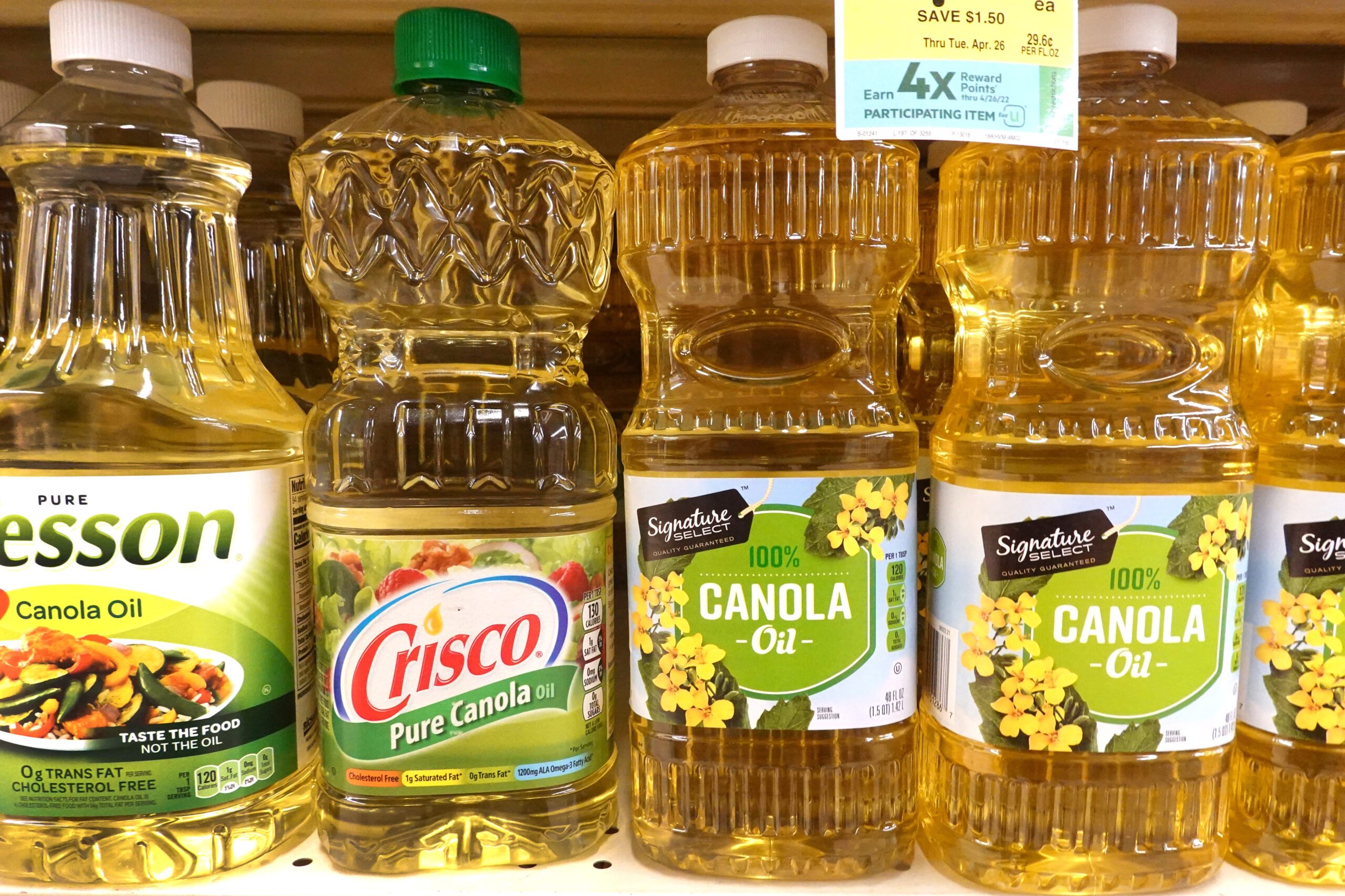You’ve probably cooked with it, but do you know what canola oil stands for? Here’s the surprising story behind the name on your oil bottle.

What Does Canola Oil Stand for, and Where Does It Come From?

What do a spicy mushroom stir-fry, blueberry muffins and crispy fried shrimp have in common? They all use canola oil. With its high smoke point, neutral taste and all-around versatility, it’s a jack-of-all-trades in the kitchen. But here’s something that might surprise you: The word canola is actually an acronym. So what does canola oil stand for, exactly?
To understand that, we have to look beyond its culinary perks and dive into its fascinating backstory. And that’s just what we did. Ahead, we’ll answer your nagging question about the cooking oil: What does canola oil stand for, how did it get its name and, perhaps most important, what is canola oil in the first place? Read on for the surprising facts about this food.
Get Reader’s Digest’s Read Up newsletter for more knowledge, tech, travel, cleaning, humor and fun facts all week long.
What is canola oil?
Canola oil is a type of vegetable oil made from the rapeseed plant, which belongs to the mustard seed family. Its unfortunate name comes from the Latin word rapum, which means “turnip.”
Made by crushing the plant’s seeds, canola oil is used in everything from homemade baked goods to fried foods to salad dressings.
Where does canola oil come from?

Rapeseed oil was a common cooking oil in Europe and parts of Asia centuries before canola oil came around. However, scientists eventually discovered that, because of the chemicals it gives off at high temperatures, unrefined rapeseed oil puts people at high risk for lung cancer. It also contains a pretty high percentage of erucic acid, which is linked to heart lesions in lab animals.
To make it safer, Canadian scientists began creating a variation of rapeseed oil that replaced almost all the erucic acid with a type of monounsaturated acid. By 1978, they had created an oil with less than 2% erucic acid and renamed it “canola.” But why did they go with this name, in particular, and what does canola oil stand for today? Let’s find out.
What does canola oil stand for?
While most cooking oils take their names from the plants they’re derived from—olive oil comes from olives, for instance—canola oil is an outlier. In fact, canola is a made-up word, not the real name of a seed, nut or fruit. But exactly what it means depends on who you ask.
According to the Canola Council of Canada, canola stands for “Canada oil.” The can in Canada blends with ola, which simply means “oil.”
At least that’s one theory. But some sources, like San Diego Miramar College, say the name goes even deeper. According to the college, the word is an acronym, breaking down like this:
- Can: Canada
- o: oil
- l: low
- a: acid.
It’s a purposeful acronym: The oil does originate from Canada and has a significantly lower erucic acid content than rapeseed oil. Conveniently, it also distanced the product from its involuntary association with rape.
Ultimately, every bottle labeled “canola oil” is technically saying “Canada oil oil”—a bit redundant, sure, but catchy! Just a little food for thought the next time you’re cruising the grocery store aisles.
Why trust us
At Reader’s Digest, we’re committed to producing high-quality content by writers with expertise and experience in their field in consultation with relevant, qualified experts. We rely on reputable primary sources, including government and professional organizations and academic institutions as well as our writers’ personal experiences where appropriate. We verify all facts and data, back them with credible sourcing and revisit them over time to ensure they remain accurate and up to date. Read more about our team, our contributors and our editorial policies.
Sources:
- Snopes: “Is Ordinary Use of Canola Oil Dangerous?”
- Merriam-Webster: “Word History”
- Canola Council of Canada: “About Canola”
- San Diego Miramar College: “What is a Canola Anyway?”























